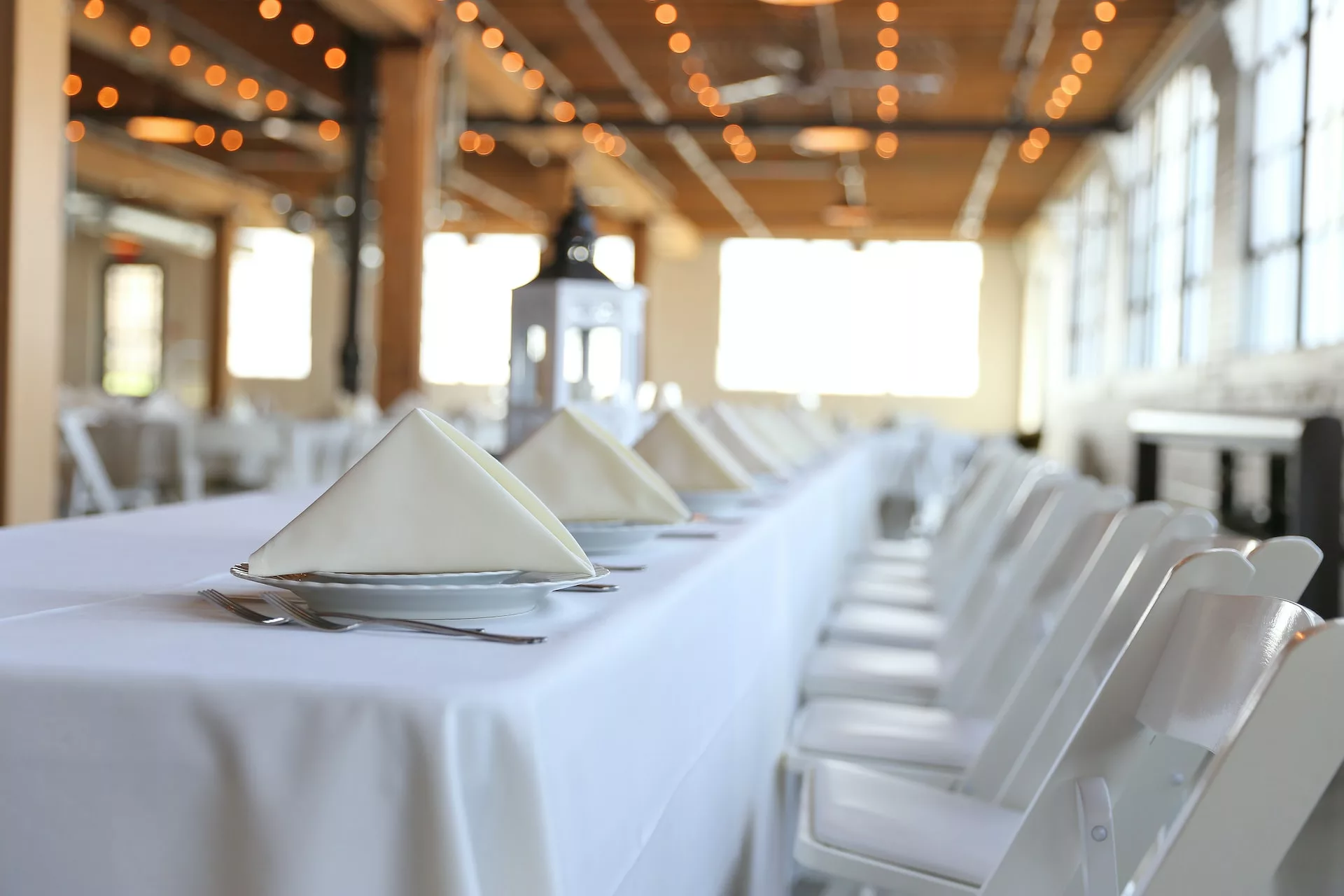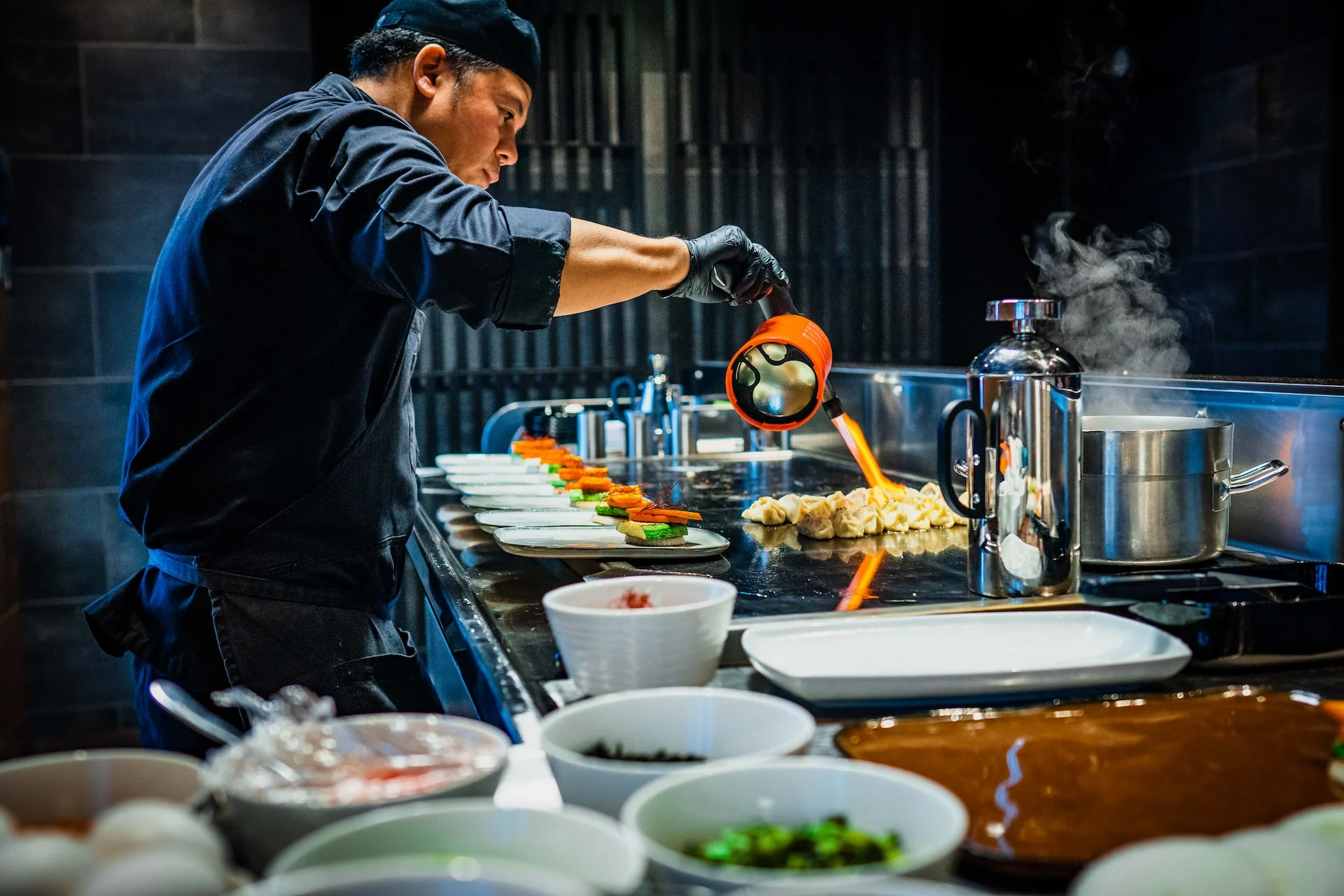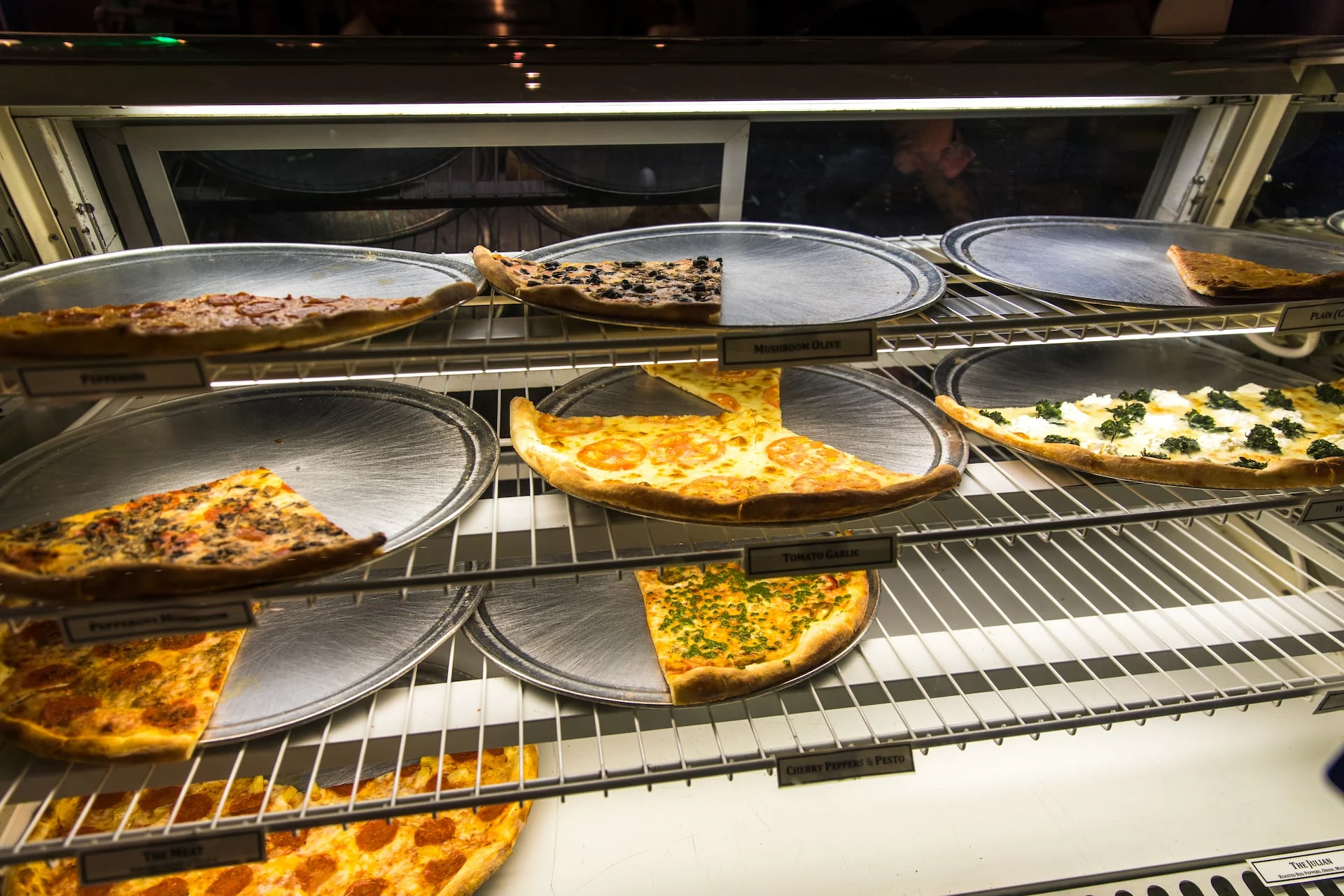Have you ever dreamed of starting your own catering business? Perhaps you love to cook and entertain, and you want to turn your passion into a successful enterprise. Or maybe you’re already in the food service industry and you’re ready to strike out on your own. Whatever your reasons, if you’re considering starting a catering business, this guide is for you.
In this guide, we’ll cover everything you need to know to get started, including tips on creating a menu, marketing your services, and booking clients. We’ll also go over some of the challenges you might face as a new catering business owner, and how to overcome them. So whether you’re just getting started or you’re ready to take your business to the next level, read on for our ultimate guide to starting a catering business. Let’s get started!
Table of Contents
- What is a Catering business?
- Why would I want to start a Catering business?
- How do I start a Catering business?
- How much does it cost to start a Catering business?
- Should I use a commissary kitchen for my catering business?
- How do I find customers for my Caterer business?
What is a Catering business?
A catering business is one that provides prepared food and services for events and gatherings. As a caterer, you would create menus, procure ingredients, prepare food, set up serving stations, and clean up afterwards.
Starting a catering business can be a lucrative and fulfilling endeavor – after all, who doesn’t love good food? However, it is important to consider the necessary steps before diving in. This includes creating a comprehensive business plan, obtaining any required permits or licenses, acquiring necessary equipment and staffing resources, and building a strong network within the industry.
With proper planning and hard work, a catering business can thrive as an essential part of any event’s success.
Why would I want to start a Catering business?
You’re a great cook. Friends and family rave about your dishes. You’ve even been thinking about going into business for yourself. But you’re not sure what kind of business to start. Many people in your position choose to start a catering business. And there are plenty of good reasons why catering is a great business to get into.
Catering is a relatively low-cost business to start. You probably have most of the equipment you need, and if you don’t, it’s not expensive to buy or rent. You can start small and grow your business as demand increases. Catering is also a flexible business. You can work part-time or full-time, evenings or weekends. And if you have young children, you can arrange your work schedule around their school and activities.
Another advantage of starting a catering business is that it’s easy to get started without a lot of experience. If you’ve been cooking for friends and family for years, you already have the skills you need to be a successful caterer. And if you don’t have a lot of experience, there are plenty of resources available to help you get started, from online courses to books and magazines.
One of the biggest advantages of starting a catering business is that it’s a relatively low-cost business to start. You probably have most of the equipment you need, and if you don’t, it’s not expensive to buy or rent. You can start small and grow your business as demand increases.
Catering is also a flexible business. You can work part-time or full-time, evenings or weekends. And if you have young children, you can arrange your work schedule around their school and activities.
Another advantage of starting a catering business is that it’s easy to get started without a lot of experience. If you’ve been cooking for friends and family for years, you already have the skills you need to be a successful caterer. And if you don’t have a lot of experience, there are plenty of resources available to help you get started, from online courses to books and magazines.
If you’re thinking about starting your own business, catering is definitely worth considering. It’s a low-cost businesses to start, it’s flexible, and it doesn’t require a lot of experience to get started. Plus, who doesn’t love food? If you’re passionate about cooking and serving others, catering could be the perfect business for you!
How do I start a Catering business?
Catering is a food service business that involves preparing, cooking, and delivering food to customers at various locations, such as homes, offices, or other event venues. If you have a passion for food and enjoy working with people, starting a catering business may be the right fit for you. Keep reading to learn how to start a catering business.
Before getting started, it’s important to understand the catering industry and what it takes to be successful in this type of business. The catering industry is segmented into two main categories: off-premise catering and on-premise catering. Off-premise catering businesses prepare food at their own facility and then transport it to the customer’s location, while on-premise catering businesses prepare and serve food at the customer’s location.
The size of the catering market was $8.5 billion in 2018, and it’s expected to grow to $10 billion by 2023. The majority of catering businesses are small businesses, with annual revenues of less than $500,000. To be successful in this industry, you will need to differentiate your business from the competition and offer value that meets the needs of your target market.
1. Develop a Business Plan
The first step in starting any business is to develop a business plan. Creating a catering business plan will help you define your business so you don’t get distracted by trying things outside of your plan. This document will outline your business goals, strategies for achieving those goals, and how you will generate revenue. When developing your business plan, be sure to do thorough research on the catering industry and your target market so that you can create realistic goals and objectives. Your business plan should also include an analysis of your competition so that you can identify how you will differentiate your business.
2. Choose Your Target Market
As we mentioned earlier, it’s important to choose a target market for your catering business so that you can focus your marketing efforts and better meet the needs of your target customers. To determine your target market, consider factors such as demographics (age, gender, income level), location, and preferences (food allergies/dietary restrictions). Once you have defined your target market, you can begin developing marketing strategies specifically tailored to appeal to this group of people.
3. Obtain the Necessary Permits and Licenses
Before you can start operating your catering business, you will need to obtain any necessary permits and licenses from local authorities. The permits and licenses required for your business will vary depending on factors such as the type of food you will be serving and the state in which your business is located. Once you have obtained all necessary permits and licenses, you will be one step closer to starting your own catering business!
4. Create a standout menu
One of the most important aspects of starting a successful catering business is creating a standout menu.
Your menu should be reflective of your unique culinary point of view—after all, that’s what will set you apart from the competition. But it should also be affordable and achievable with the resources you have available (i.e., staff, kitchen space, etc.). To come up with a menu that hits all those marks, start by brainstorming all of your favorite dishes—both ones you love to eat and ones you love to make. Then, consider how those dishes could be adapted for large groups or special dietary needs.
And finally, price out each dish so you have an idea of what they’ll cost to make. Crafting a mouthwatering menu is key to starting a successful catering business—so don’t skimp on this step!
5. Find the right suppliers
No matter how great your menu is, it won’t matter if you can’t source quality ingredients at an affordable price point. That’s why finding the right suppliers is essential for any catering business. Take some time to research different suppliers in your area—compare prices, delivery times, minimum order quantities, etc.—to find the ones that best meet your needs. Once you’ve found a few good suppliers, develop relationships with them so you can take advantage of bulk discounts or other perks they may offer their best customers.
6. Invest in some key pieces of equipment
Outfitting your kitchen with all the necessary equipment can be one of the biggest startup costs for a new catering business—but it’s also one of the most important investments you’ll make. When choosing equipment for your commercial kitchen, prioritize items that will help streamline food prep and minimize waste (like high-quality knives and cutting boards) or improve safety (like nonslip floor mats). Also consider items that will make serving large groups easier (like chafing dishes and buffet warmers) or help transport food long distances (like coolers and insulated bags). Outfitting your kitchen with the right equipment will help ensure that your catering business runs like a well-oiled machine—and that’s crucial for success in this industry.
How much does it cost to start a Catering business?
If you’re thinking of starting a catering business, you’re not alone. The catering industry has seen steady growth in recent years, as more and more people are looking for convenient, healthy, and affordable meal options. But before you start whipping up gourmet meals for your first client, it’s important to understand the costs associated with starting a catering business. In this section of the Ultimate Guide to Open a Catering Business, we’ll break down the major start-up costs you need to be aware of and give you some tips on how to keep your costs low.
Ingredient Costs
Of course, one of the biggest expenses associated with starting a catering business is the cost of ingredients. If you’re planning on serving healthy, organic meals, you can expect your ingredient costs to be higher than if you were serving more traditional fare. To keep your ingredient costs down, try sourcing your ingredients from local farmers markets or online retailers like Amazon Pantry.
Equipment Costs
In addition to ingredients, you’ll also need to factor in the cost of purchasing or leasing kitchen equipment. If you don’t have access to a commercial kitchen, you’ll need to invest in transportation equipment like refrigerated vans or coolers. And don’t forget about the small stuff—you’ll need utensils, dishes, serving platters, and other miscellaneous items. To save money on equipment costs, try borrowing from friends or family members or renting equipment from a local event rental company.
Marketing Costs
No matter how great your food is, it won’t matter if no one knows about your catering business. That’s why it’s important to factor in marketing costs when calculating the cost of starting your business. You’ll need to budget for things like designing a logo, creating a website, and advertising in local publications. To save money on marketing, try reaching out to local businesses and offering to cater their events for free in exchange for exposure. You can also harness the power of social media by creating a strong online presence for your business.
Insurance Costs
Another important consideration for any business is insurance. Catering businesses are no exception. Be sure to factor in the cost of liability insurance, which will protect you in the event that someone is injured while on your property or if you’re sued for damages resulting from your catering services.
When it comes to starting a catering business, the amounts can vary greatly. It all depends on the size and scope of your operation. A small, home-based catering business can be started for as little as $5,000, while a larger commercial catering business can easily cost upward of $50,000.
Should I use a commissary kitchen for my catering business?
If you’re starting a food business, you may be wondering if you need your own commercial kitchen — or if you can get by using a commissary kitchen.
Commissary kitchens are shared commercial kitchens that food businesses can rent by the hour. They’re often less expensive than leasing or building your own commercial kitchen, and they can provide flexibility if your business is growing or changing.
However, commissary kitchens also have some drawbacks. In this section, we’ll cover when you should use a commissary kitchen — and when you might be better off with your own space.
The Pros of Using a Commissary Kitchen
There are several reasons you might choose to use a commissary kitchen, including:
- You don’t need a full-time space: If you only need to cook occasionally or outside of normal business hours, a commissary kitchen can give you the flexibility to pay only for the time you use.
- It’s less expensive than leasing or building your own space: Commissary kitchens typically cost $25 to $50 per hour, whereas leasing your own commercial kitchen can cost hundreds of dollars per month.
- You don’t have to worry about maintaining the space: Most commissary kitchens include utilities and equipment upkeep in the hourly rate, so you don’t have to worry about repairing or replacing appliances yourself.
- You can test out multiple locations: If you’re thinking about expanding your business to a new city or region, a commissary kitchen can let you experiment with different areas without committing to a long-term lease.
The Cons of Using a Commissary Kitchen
While there are some clear benefits to using a commissary kitchen, there are also some drawbacks to consider, including:
- It can be difficult to find available time slots: Because commissary kitchens are shared spaces, you may have difficulty finding an open time slot that works for your business. This is especially true if you need to cook during peak hours or on weekends.
- The quality of the ingredients may vary: If other businesses in the commissary are using lower-quality ingredients, those flavors may carry over into your food — even if you’re using higher-quality ingredients yourself. This can be mitigated by cooking at off-peak times or working with a commissary that specializes in catering businesses.
- You may have limited storage space: Most commissaries have limited storage space for dry goods and supplies, so you’ll need to make sure everything you need is readily available. This may not be an issue if you’re cooking small batches of food, but it could be problematic if you’re preparing large quantities.
So should you use a commissary kitchen for your catering business? It depends on your needs and preferences. If you want more flexibility and don’t mind working around the schedules of other businesses, a commissary kitchen could be a good option for you. However, if you need more predictable cooking times and want to be sure of the quality of your ingredients, it might make more sense to lease or build your own commercial kitchen space.
How do I find customers for my Caterer business?
Catering can be a very competitive industry, so it’s important to make sure you’re targeting the right market for your particular business. In this section, we’ll share some tips on how to identify potential catering customers and get your business off the ground.
Define Your Target Market
The first step in finding customers for your catering business is to define your target market. This may seem like a no-brainer, but it’s important to be as specific as possible when identifying who your ideal customer is. Consider factors like age, gender, income level, location, and interests when narrowing down your target market.
One of the best ways to get an idea of who your target market is would be to survey people who you think would be interested in using your catering services. Ask them questions about their experiences with catering businesses in the past and what they’re looking for in a caterer. This will give you valuable insight into what potential customers are actually looking for.
Develop a Niche
One of the best ways to stand out in the catering world is to develop a niche. By focus on a specific type of event or cuisine, you’ll be able to better market your business and attract the attention of potential customers who are looking for exactly what you have to offer. Developing a niche also encourages word of mouth marketing for your catering business. Once you establish your company in a particular niche, people will spread the word about your quality catering services.
Use Social Media Marketing
Social media is a powerful tool that can help you reach a large number of potential customers with minimal effort. Platforms like Facebook and Instagram allow you to specifically target people who fit your target market demographics.
When creating social media content, focus on highlighting what makes your catering business unique. Share photos and videos of your food, highlight satisfied customer testimonials, and promote any special offers or deals you may be running. If you have a brick-and-mortar location, also be sure to include that in your social media profile so people can easily find you.
Attend Local Events
Another great way to find potential catering customers is by attending local events and getting involved in the community. Trade shows, festivals, farmers markets, and other community events are all great opportunities to network and promote your business. Set up a booth or table at these events and hand out promotional materials like flyers or business cards. And if possible, offer samples of your food so people can see (and taste) what they’re missing out on!
Get Listed on Catering Directories
There are numerous online directories dedicated to connecting caterers with potential customers who are searching for their services. Getting listed on these directories is a great way to increase your visibility and reach new clients who might not have otherwise heard of your business. When creating your listing, be sure to include high-quality photos and videos of your food, as well as detailed information about your services and pricing options.
Catering Business Startup Articles
Who are the main customers for a Catering Business?
Starting a catering business can be both exciting and daunting. One key factor in its success is understanding who the main customer groups are and how to meet their needs.
How do I name my Catering Business?
Naming your catering business is an important first step in starting your business. It can lay the foundation for how your customers view, remember and engage with your business. Finding the perfect name to fit all those criteria, however, can be a challenge.
Is a Catering Business a good business?
If you’re interested in becoming your own boss and using your passion for food and hospitality to make a living, then starting a catering business could be the perfect opportunity. But before taking the plunge, it’s important to understand exactly what running a catering business entails – from the possible pitfalls to the potential rewards.
7 Things About Opening a Catering Business I Wish I Knew Before Starting
Starting a catering business can be daunting, but it doesn’t have to be! Looking back on my own journey, I’ve compiled seven things I wish I had known before starting out in the world of catering.
Do you need qualifications to start a Catering Business?
Starting your own catering business can be a very rewarding experience. However, there are some things you need to know before you get started. In this article, we will discuss the qualifications you need to start a catering business and provide some tips for success.
8 Step Plan to Quickly Open a Catering Business
Catering is a great way to feed your friends, family, and even strangers! If you’re thinking about starting a catering business, here’s an 8 step plan to help you get started quickly.
Start a Romantic Catering Business: Your Complete Guide
Love is in the air—and so is delicious food. If you’re looking to start a romantic catering business, you’re in luck. This guide will show you everything you need to know to get started.
Start a Deli: Your Ultimate Guide
Ready to take the plunge and start your own deli? It’s a big undertaking, but with careful planning and execution, it can be a hugely rewarding experience. Here’s your ultimate guide to getting started.
Start a Pizza Shop: Your Ultimate Guide
Starting your own pizza shop is a dream for many people. It’s definitely not an easy path to take, but it can be very rewarding. This guide will walk you through everything you need to know to make your dream a reality.










